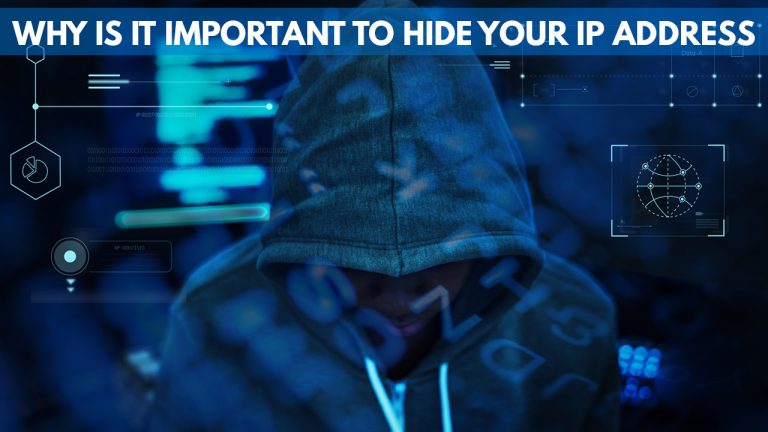
Everyone ignores it, yet everything you do online may be tracked. This is how snoopers and authorities may keep track of what you have been browsing for on the internet as well as your online transactions. This is one of the most often mentioned reasons for service providers to apply geo-blocking and limitations on certain customers.
This is all done through your IP address. An IP address identifies your device and lets websites know where you’re accessing the Internet from. Google may retain detailed records of your search history by connecting each query to your IP address.
There are methods for changing your IP address in order to remain private and access the internet anonymously. It all starts with connecting to a virtual private network (VPN), which creates a secure link between you and your servers.
They may rewrite your activities over their network in order to assign a new IP address to your data packets. A reputable VPN provider will not log your activities, so no one will be able to trace your browsing habits back to you.
Here are 10 reasons why you should safeguard your IP address from accidents, geo-blocking, censorship, and surveillance.
1. Anonymous Location
Due to geo-blocking and access limitations, it may be difficult to view your favourite shows when travelling overseas. By masking your IP address, you may connect to the server of the relevant country and watch television as if you were streaming from home. It is simple to do by utilising the several recommended VPN providers that are offered. To get the most out of it, we recommend that you always utilise ExpressVPN, NordVPN, or SurfShark.
2. Avoid Government Inspections
It is no secret that governments all around the globe are already tracking Internet users through cookies, web beacons, and other tracking technology. Allowing the government to obtain surfing data and metadata exposes everyone’s internet activities. By masking their IP addresses, users may conceal their Internet activity.
Many countries’ surveillance laws are growing more stringent. It becomes considerably more dangerous when all of the accumulated information enters into the hands of the wrong people, such as hackers and fraudsters.
3. Real Identity Encryption
When a person hides their IP address using encryption, all of their Internet browsing activity is erased. Hiding your true identity in cyberspace is required because there are numerous bad souls out there looking for you, tracking your physical ID or real ID and gaining financial benefit by selling out your information, making an online transaction using your ID, or any other means the ultimate goal is to avail the opportunity.
4. Geo-Blocking
It is the most recent approach employed by several well-known platforms to restrict users depending on their country of origin. Netflix, the entertainment king, does the same, as the shows they provide to the US area cannot be accessible in Europe. As a result, many utilise VPN services to watch their favourite shows online.
- You cannot access Facebook or Google in China because they have placed a restriction.
- It is illegal in Russia to utilise LinkedIn; instead, they manage own platforms.
- Germany is not far behind; they are also at the forefront of enforcing YouTube video restrictions.
Circumventing the system by changing your IP address may shield you from censorship while also allowing you to enjoy and be amused online.
5. Avoid Network Restrictions
Every device is linked to a network that allows it to access the internet. Network administrators may limit users’ access to specific websites at times. These limitations are removed by the user when he changes his IP address by utilising a proxy or a fake IP address, which increases accessibility and eliminates censorship.
6. Keep a safe distance from hackers.
Many snoopers, including marketers and, more dangerously, hackers, may be on the watch. It gives a great level of online security since the actual physical location is disguised behind a bogus IP address. Hackers attempt to break the online session and obtain your actual details, which they then use to steal your money or sell to a third party.
7. Avoid ISP Surveillance
Customers’ data must be tracked and stored by Internet service providers. Several Internet service providers have been caught collecting, storing, and selling client information to third parties or using it for promotional reasons. To ensure that information is safe and inaccessible, the IP address will be hidden.
8. The Pitfalls of Public WiFi
Users appreciate your usage of free WiFi while connecting to a public network. While public WIFI networks are easily accessible to all netizens, the danger and insecurity associated with them are high. By changing your IP address, you may remain anonymous and secure when connected to an unprotected network where hackers may be lurking, waiting to steal personal and financial information.
9. Exceptional Privacy
Search engines track and retain information about users’ online activities. Any other user who logs onto the same computer will be able to simply retrace your search history. While using a VPN service, it is critical to erase cookies after each browsing session.
10. Liberty
Hide your IP address to protect yourself from third-party and government scanners and surveillance. It would provide you the flexibility to make secure transactions while still protecting your internet privacy.
Conclusion
Using the internet without being anonymous exposes you to the hackers and crackers out there who can smell your activity and hack your session to pass over your actual information, resulting in a bad scenario for you but money gain for them.
We strongly advise you to always utilise VPN services such as
- ExpressVPN
- NordVPN
- IPVanish VPN
- SurfShark VPN
The services mentioned above are worthwhile to use. Using a VPN will safeguard your credentials, protecting you from intruders, shielding you from surveillance, and making you a “Happy and Free User” in cyberspace.